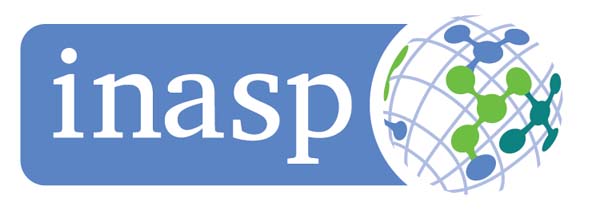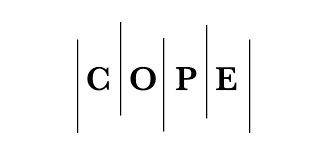The application of fuzzy Logic in improving the Performance of the European Foundation for Quality Management(EFQM)
DOI:
https://doi.org/10.29304/jqcm.2022.14.3.1025Keywords:
RADAR, EFQM, Fuzzy LogicAbstract
In today's tumultuous and competitive business environment, executives are more motivated than ever to demonstrate their teams' mettle by stellar results. The European Foundation for Quality Management (EFQM) has developed and verified the Excellence Model (EFQM) as the gold standard for measuring an organization's pursuit of excellence. An updated integrated strategy that incorporates fuzzy logic into the EFQM model is a powerful tool for boosting an organization's overall performance. This research utilizes the EFQM paradigm to suggest a novel and all-encompassing strategy for enhancing corporate performance. We looked at the specific situation of the Iraqi Oil Tanker Company to determine how doable the strategy actually is. With the use of the EFQM framework developed by the European Foundation for Quality Management, we have shown how useful this tool is for pinpointing both strengths and places for development. The RADAR Logical Method and Fuzzy-Based Strategy were utilized in this case study (EFQM). Matlab was used to apply the suggested technique for assessing the performance of the Iraqi Oil Tankers Company during a three-year period.
Downloads
References
[2] A. Calvo‐Mora, A. Leal, and J. L. Roldán, “Using enablers of the EFQM model to manage institutions of higher education,” Qual. Assur. Educ., 2006.
[3] S. D. Anastasiadou and P. A. Zirinoglou, "EFQM dimensions in greek primary education system," Procedia Econ. Finance., vol. 33, pp. 411–431, 2015.
[4] V. Belvedere, A. Grando, and H. Legenvre, “Testing the EFQM model as a framework to measure a company’s procurement performance,” Total Qual. Manag. Bus. Excell., vol. 29, no. 5–6, pp. 633–651, 2018.
[5] E. Suárez, A. Calvo-Mora, J. L. Roldán, and R. Periánez-Cristóbal, “Quantitative research on the EFQM excellence model: A systematic literature review (1991–2015),” Eur. Res. Manag. Bus. Econ., vol. 23, no. 3, pp. 147–156, 2017.
[6] J. Dobrovič, Ľ. Kemco, P. Gallo, and P. Gallo jr, "Implications of the Model EFQM as a Strategic Management Tool in Practice: A Case of Slovak Tourism Sector: Dobrovič, J., Kmeco, L., Gallo, P., Gallo jr., P.(2019). Implications of the Model EFQM as a Strategic Management Tool in Practice: A Case of Slova," J. Tour. Serv., vol. 10, no. 18, pp. 47–62, 2019.
[7] B. Al-Majali and M. Almhirat, "The role of European Foundation for Quality Management (EFQM) in improving public sector efficiency and its impacts on customer satisfaction employees results and corporate image," Int. J. Qual. Res., vol. 12, no. 3, p. 593, 2018.
[8] V. C. Nguyen and N. T. Chau, “Research framework for the impact of total quality management on competitive advantage,” Rev. Int. Bus. Strategy., vol. 27, no. 3, pp. 335–351, Jan. 2017, DOI: 10.1108/RIBS-02-2017-0016.
[9] F. Bagheri, R. Noorossana, and M. Najmi, "The extent of EFQM effectiveness in routine and non-routine organizations based on multivariate techniques: an empirical study," Oper. Res., vol. 19, no. 1, pp. 237–267, 2019.
[10] J. Dodangeh, R. M. Yusuff, and J. Jassbi, “Assessment system based on fuzzy scoring in European Foundation for Quality Management (EFQM) business excellence model,” African J. Bus. Manag., vol. 5, no. 15, pp. 6209–6220, 2011.
[11] A. Kiraz and N. Açikgöz, “A fuzzy-logic-based approach to the EFQM model for performance enhancement,” Sādhanā, vol. 46, no. 1, pp. 1–15, 2021.
[12] A. Abreu, R. Santos, J. M. F. Calado, and J. Requeijo, “A Fuzzy Logic Model to Enhance Quality Management on R&D Units,” KnE Eng., pp. 285–298, 2020.
[13] S. Aydin, C. Kahraman, and İh. Kaya, "A new fuzzy multicriteria decision-making approach: An application for European Quality Award assessment," Knowledge-Based Syst., vol. 32, pp. 37–46, 2012.
[14] A. Khosravi, M. Fallah, and S. E. Najafi, “An EFQM-fuzzy network data envelopment analysis model for efficiency assessment in organizations,” J. Math., vol. 2021, 2021.
[15] O. Uygun, S. Yalcin, A. Kiraz, and E. F. Erkan, "A novel assessment approach to EFQM driven institutionalization using integrated fuzzy multicriteria decision-making methods," 2020.
[16] J. H. Ezzabadi, M. D. Saryazdi, and A. Mostafaeipour, “Implementing Fuzzy Logic and AHP into the EFQM model for performance improvement: A case study,” Appl. Soft Comput., vol. 36, pp. 165–176, 2015.
[17] J. Dodangeh, R. M. Yusuff, N. Ismail, M. Y. Ismail, M. R. B. Zadeh, and J. Jassbi, “Designing fuzzy multi criteria decision making model for best selection of areas for improvement in European Foundation for Quality Management (EFQM) model,” African J. Bus. Manag., vol. 5, no. 12, pp. 5010–5021, 2011.
[18] J. Daniel, M. Naderpour, and C.-T. Lin, “A fuzzy multilayer assessment method for EFQM,” IEEE Trans. Fuzzy Syst., vol. 27, no. 6, pp. 1252–1262, 2018.
[19] S. Yousefie, M. Mohammadi, and J. H. Monfared, “Selection effective management tools on setting European Foundation for Quality Management (EFQM) model by a quality function deployment (QFD) approach,” Expert Syst. Appl., vol. 38, no. 8, pp. 9633–9647, 2011.
[20] U. Nabitz, N. Klazinga, and J. A. N. Walburg, “The EFQM excellence model: European and Dutch experiences with the EFQM approach in health care,” Int. J. Qual. Heal. Care, vol. 12, no. 3, pp. 191–202, 2000.
[21] D. Kafetzopoulos, K. Gotzamani, and D. Skalkos, “The relationship between EFQM enablers and business performance: The mediating role of innovation,” J. Manuf. Technol. Manag., 2019..
[22] L. Para-González, D. Jiménez-Jiménez, and A. R. Martínez-Lorente, “The link between people and performance under the EFQM excellence model umbrella,” Total Qual. Manag. Bus. Excell., vol. 32, no. 3–4, pp. 410–430, 2021.
[23] A. Calvo-Mora, A. Navarro-García, and R. Periañez-Cristobal, “Project to improve knowledge management and key business results through the EFQM excellence model,” Int. J. Proj. Manag., vol. 33, no. 8, pp. 1638–1651, 2015.
[24] J. Zhang et al., “Development of a market-oriented EFQM excellence model for analyzing the implementation of quality management in developing countries,” Int. J. Constr. Manag., vol. 21, no. 9, pp. 884–909, 2021.
[25] S. Verner, U. Nabitz, G. Bragonzi, A. Rebelli, and R. Molinari, “A two‐level EFQM self‐assessment in an Italian hospital,” Int. J. Health Care Qual. Assur., 2007.
[26] A. Calvo-Mora, M. Domínguez-CC, and F. Criado, "Assessment and improvement of organizational social impact through the EFQM Excellence Model," Total Qual. Manag. Bus. Excell., vol. 29, no. 11–12, pp. 1259–1278, 2018.
[27] L. C. d. Barros, R. C. Bassanezi, and W. A. Lodwick, "The first course in fuzzy logic, fuzzy dynamical systems, and biomathematics: theory and applications," ed: Springer, 2017.
[28] T. Munakata, Fundamentals of the new artificial intelligence, vol. 2. Springer, 1998.
[29] Z. T. Allawi and T. Y. Abdalla, “An optimal defuzzification method for interval type-2 fuzzy logic control scheme,” in 2015 Science and Information Conference (SAI), 2015, pp. 619–627.
[30] T. Y. Abdalla, H. A. Hairik, and A. M. Dakhil, “Direct torque control system for a three phase induction motor with fuzzy logic based speed controller,” in 2010 1st International Conference on Energy, Power and Control (EPC-IQ), 2010, pp. 131–138.
[31] S. A. Abbas, A. A. Hassan, and W. S. Al-Rekabi, “Estimation of MeanReference Evapotranspiration in Basrah City, South of Iraq Using Fuzzy Logic,” J. Univ. Babylon, vol. 25, no. 1, 2017.













